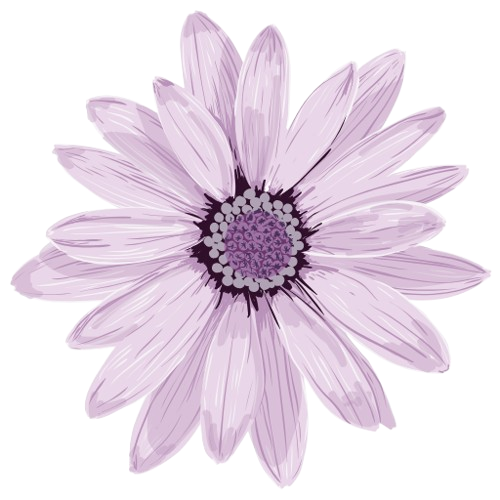Performance of an Olympic Athlete, Focus & Mental Acuity of a Diplomat
Rhodiola rosea (Golden root) has been in use since Viking times to boost endurance and treat fatigue and depression. It is a recent addition to American scientific herbalism because most research was done by the Russian military and was kept a secret until 1994 (after the Soviet Union collapsed. Please see References below for a list of additional research studies.)
One of the greatest things Rhodiola does is enhance mental and physical performance. It has been widely used by Russian athletes, soldiers, cosmonauts, and diplomats. One may remember the dominance of Russian athletes during the 1980s, the endurance records of their cosmonauts, and the mental games of Russia’s diplomats during the Cold War. Rhodiola is cardio-protective, normalizing the heart rate immediately after intense exercise. It improves the nervous system and mental functions such as memory by increasing blood supply to the muscles and brain. It also increases protein synthesis for endurance.
A large proportion of all aging diseases (perhaps 70-80%) are believed to occur because the stress level is too high, and/or too long-term. High-stress modern living is probably the main factor causing chronic disease and premature aging. Fortunately, Mother Nature has an answer to this challenge – a unique class of herbal products called “adaptogens”. Adaptogens have the broadest spectrum of healing properties of any herbal medicine, but their unique value is that they specifically relieve stress. Rhodiola rosea is a very powerful adaptogen!
According to a comprehensive review in HerbalGram, the journal of the American Botanical Council, the herb Rhodiola lessens the release of stress-related hormones. It is believed that Rhodiola’s beneficial properties stem from its ability to influence the activities and levels of brain chemicals such as serotonin and norepinephrine as well as the natural “feel good” hormones such as beta-endorphins. In addition, Rhodiola rosea has extraordinary pharmacological properties as an anti-mutagen and anti-depressive agent.
As for its cardiovascular effects, Chinese and Russian studies show that Rhodiola lowers blood pressure, slows the heart rate, normalizes heart rhythm, prevents stress-induced heart damage, and reduces levels of C-reactive protein (creator of inflammation), which is a major risk factor for heart attack. It also improves blood flow through the brain.
Rhodiola is a “powerful antioxidant” that may help prevent or repair cancer-related cell mutations. Preliminary research indicates that Rhodiola may increase the efficacy of chemotherapy medications (it virtually eliminates the toxicity of adriamycin, a widely used cancer drug) and improve the immune function of people with bladder cancer. In addition, Ukrainian, Korean, and Chinese investigations show that Rhodiola has some major qualities that help protect the liver.
Rhodiola rosea stimulates the immune system in two ways:
- 1. by specific direct stimulation of the immune system’s Natural Killer Cells. NK cells seek and destroy the infected cells in our bodies.
- 2. by making a person less susceptible to stress. Scientists found that when we are chronically in a stress condition it robs energy from other systems. The general effect is a lowered immune response and decreased health.
Bulgarian researchers have demonstrated that Rhodiola rosea activates hormone-sensitive lipase, which plays a key role in breaking down the fat stored in adipose tissue. Soviet clinical studies showed that the combination of Rhodiola rosea together with physical exercise can be a powerful tool in the activation and use of fat-tissue lipase, resulting in the breakdown of stored fat.
The usual amounts taken of a Rhodiola rosea extract are 200 to 600 mg per day. Standardized extracts from the Russian Rhodiola are considered to be the “Cadillac” of the Rhodiola species. Chinese, Tibetan, and other sources of Rhodiola do not equate favorably with the Russian source. Rhodiola is usually taken with water before meals or at mealtimes.
Please note: Rhodiola has a more stimulating effect at lower amounts and a more sedating effect at higher amounts.
Besides being one of the best adaptogens for the mind, memory, and stress problems Rhodiola:
- increases energy and stamina.
- enhances alertness, concentration, and memory.
- reduces the effects of stress.
- lowers blood pressure.
- normalizes heart function.
- augments cancer treatment and lessens its toxic effect on the body.
- protects the liver.
- eases adaptation to high altitudes.
- is helpful in the treatment of neuroses, depression, hypotension, and other diseases.
- increases the body’s resistance to physical and mental overloads and negative environmental effects.
- improves performance, resistance to strain, and restoration of strength with increased physical loads.
- helps prevent alcohol and drug addiction.
- maybe successfully taken by drivers, flight personnel, and traffic controllers, as well as other professional people who are engaged in work or activities that require increased attention and stamina.
Russian medical researchers gave Rhodiola rosea to its cosmonauts, soldiers, sportsmen, and aging political leaders as an effective way to prevent the development of fatigue, to improve cognitive functions, endurance, mental and physical performance and to prevent seasonal diseases. For a change, it’s time we stole some of their secrets. Rhodiola rosea can be an important addition to all our health regimes
Rhodiola has few side effects; however, some people report increased blood pressure.
Rhodiola may thin your blood, so discontinue use before surgery and consult your doctor if you take blood-thinning medications like Coumadin (warfarin) or supplements like vitamin E. You should not use Rhodiola if you are pregnant.
REFERENCES
- 1 Maslova L.V. et al. (1994) “The cardioprotective and antiadrenergic activity of an extract of Rhodiola rosea in stress” Eksp Klin Farmakol 57(6): 61-6
- 2. Zakir Ramazanov, Z. et al. (1999) “New secrets of effective natural stress and weight management, using Rhodiola rosea and Rhodendron caucasicum” ATN/Safe Goods Publishing, CT.
- 3. Germano, C. et al. (1999) “Arctic root. The powerful new ginseng alternative” Kensington Publ.Corp.
- 4. Petkov, V.D. et. al. (1986) “Effects of alcohol aqueous extract from Rhodiola rosea L. roots on learning and memory” Acta Physiol Pharmacol Bulg 12(1): 3-16
- 5. Duhan, O.M. et al. (1999) “The antimutagenic activity of biomass extracts from the cultured cells of medicinal plants in the Ames test” Tsitol Genet Nov-Dec 33(6): 19-25
- 6. Udintsev SN; et.al. (1991) “The role of humoral factors of the regenerating liver in the development of experimental tumors and the effect of Rhodiola rosea extract on this process” Neoplasma;38(3): 323-31
- 7. Bocharova OA et.al. (1995) “The effect of a Rhodiola rosea extract on the incidence of recurrences of a superficial bladder cancer (experimental clinical research)” Urol Nefrol (Mosk) Mar-Apr (2): 46-7
- 8. Salikhova RA et.al. (1997) “Effect of Rhodiola rosea on the yield of mutation alteration and DNA repair in bone marrow cells”. Patol Fiziol Exsp Ter Oct-Dec (4): 22-4
- 9. Linh PT et.al. (2000) “Quantitative determination of salidroside and tyrosol from the underground part of Rhodiola rosea by high-performance liquid chromatography” Arch Pharm Res Aug 23(4): 349-52
- 10. Brown RP, Gerbarg PL, Ramazanov Z. Rhodiola rosea: a phytomedicinal overview. Herbalgram 2002;56:40–52.


Recent Posts